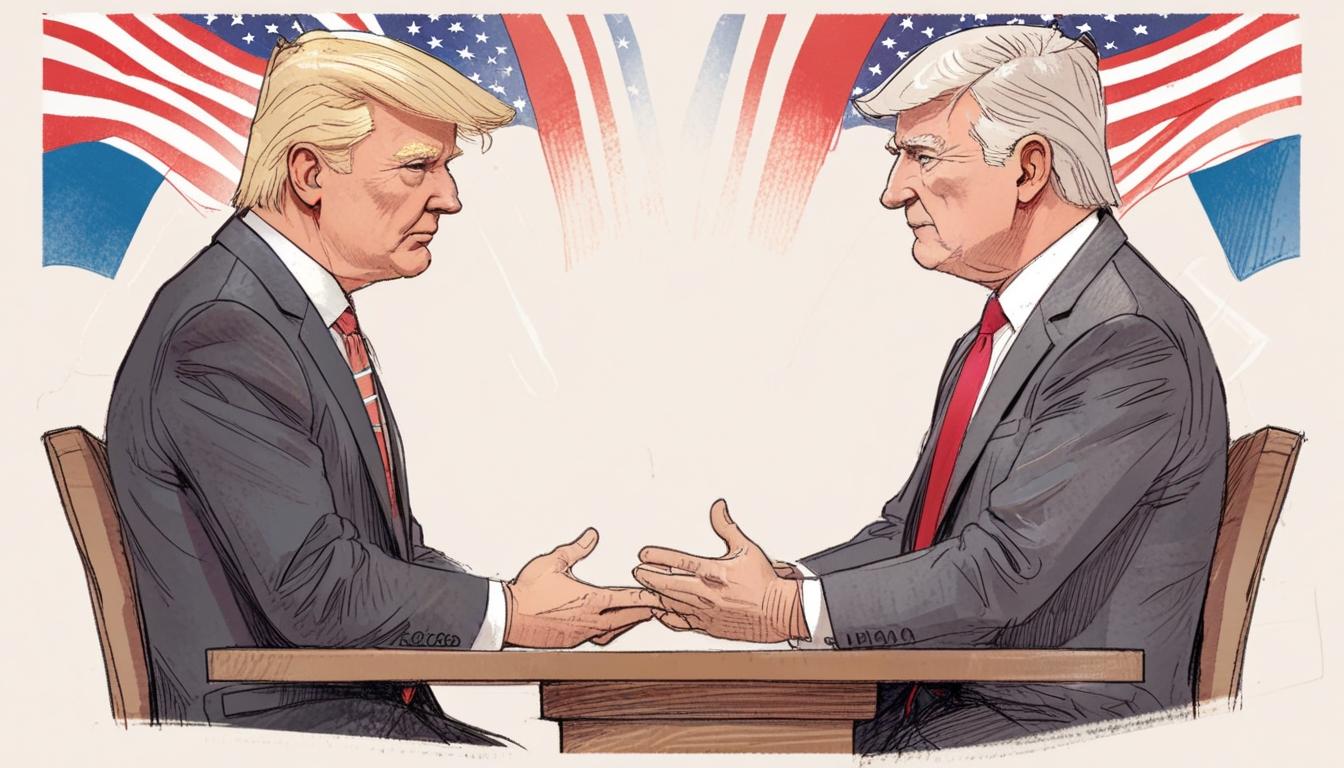In recent discourse surrounding US foreign policy, particularly regarding the situation in Ukraine, prominent figures such as former President Donald Trump and current Vice President JD Vance have garnered attention for their perspectives, which starkly diverge from traditional viewpoints. Their comments have raised eyebrows and invited scrutiny within political circles and the media.
Donald Trump, who has expressed controversial opinions about the Ukraine conflict, claimed that President Volodymyr Zelenskyy of Ukraine is a "dictator" and suggested that Ukraine instigated the war. Evidence from recent polling, however, indicates that Zelenskyy maintains a significant level of support among the Ukrainian populace, countering Trump's assertion that he is "very low in the polls". Meanwhile, JD Vance has prioritised concerns about what he describes as a domestic threat to free speech, stating, “the threat from within … is worse than any threat from Russia or China”. His views signal a shift in focus away from international conflicts, illustrating a broader trend among certain right-wing factions that advocate for a more isolationist approach.
The statements made by Trump and Vance highlight a critical pivot in US foreign policy rhetoric. Both figures articulate a belief that the US should reassess its involvement in global conflicts, questioning the merits of spending substantial financial resources on European security and foreign aid to distant nations. They argue that the sacrifices made by the US over decades have not yielded satisfactory results, suggesting that it is time for Europe to assume greater responsibility for its own defence.
Critics argue that this stance negates historical alliances and the complexities of international relations. The legacy of treaties such as NATO, established in the aftermath of World War II, is now scrutinised under this new lens, with Vance declaring that the US is "no longer the primary guarantor of security in Europe". This remark echoes sentiments reminiscent of early 20th-century isolationism, when American leaders, including Woodrow Wilson and Franklin Roosevelt, assured the public about non-involvement in foreign wars, a promise that proved untrue.
As the situation in Ukraine evolves, the implications of shifting US policy remain uncertain. Analysts warn that without substantial support from Washington, Kyiv's prospects for a successful outcome in the conflict are bleak. The discourse around a potential shift towards a multipolar world, as suggested by Trump and Vance, may require a broader conversation about international commitments and the future of US engagement abroad.
Prominent political figures within the UK, such as Labour leader Keir Starmer, have also entered the debate, with Starmer advocating for increased defence expenditure. However, critics question whether such a stance is based on genuine security concerns or political strategy.
The complex landscape of US foreign policy is continuing to unfold, with figures like Trump and Vance at the forefront of a movement that seeks to redefine America's role on the global stage. Their comments reflect a growing sentiment among certain political factions, signalling a desire for a dramatic re-evaluation of decades of foreign interventions and alliances. As these discussions carry on, the ramifications for international relations and security dynamics around the world remain to be seen.
Source: Noah Wire Services
